Jeremy Corbyn rejects Len McCluskey claims of anti-Semitic 'smears'
- Published
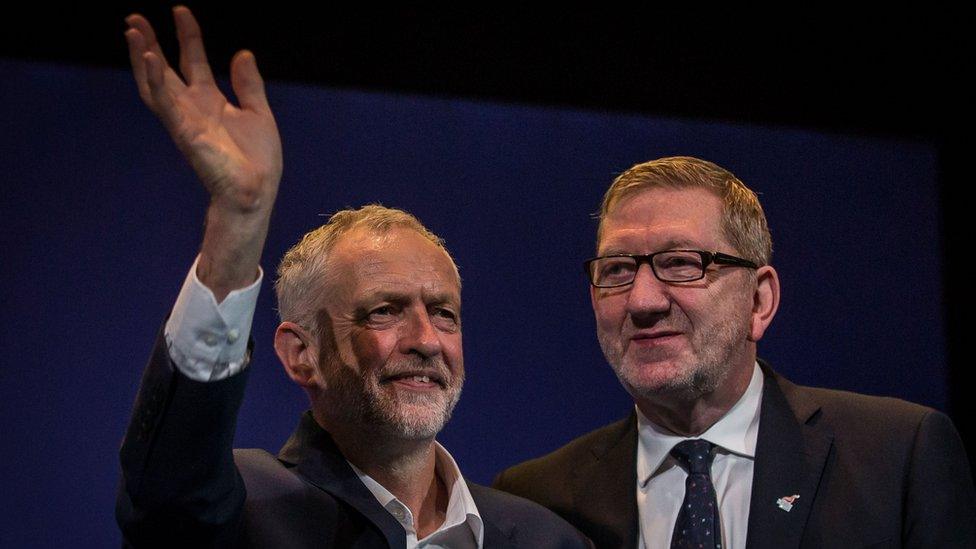
Jeremy Corbyn has rejected claims by close ally Len McCluskey that "Corbyn-hater" Labour MPs were using an anti-Semitism row to "smear" him.
Mr McCluskey said he backed action to stamp out anti-Semitism in the Labour Party.
But the Unite union leader warned MPs trying to "re-toxify" Labour by attacking Mr Corbyn they "can expect to be held to account".
Mr Corbyn has repeatedly vowed to stamp out anti-Semitism in Labour.
Asked if he agreed with Mr McCluskey that there was a smear campaign against him, Mr Corbyn said: "No, because we have to deal with the issue of anti-Semitism.
"Anti-Semitism is a poison in our society, I am determined to drive it out of our society, including wherever is raises its head in my own party and that's exactly what we are doing."
Appearing on the BBC's Question Time, shadow home secretary Diane Abbott would not be drawn on whether she agreed or disagreed with Mr McCluskey's comments.
She said Labour clearly had a problem with anti-Semitism that had not been "tackled properly" in the past, but urged people not to treat the issue as "some party political game".
"The idea that there is much more anti-Semitism in the Labour Party and none in any other party - that can't be right," she said.
Labour has been dogged by a series of incidents including criticism last month of Mr Corbyn's comments on an allegedly anti-Semitic mural in 2012 and the party's suspension of former London Mayor Ken Livingstone over his claim that Adolf Hitler had supported Zionism in the 1930s.
Mr Corbyn has apologised for anti-Semitism - prejudice against Jewish people - in his party and said he was "absolutely committed" to rooting it out.
MPs given standing ovations after anti-Semitism speeches
But several Labour MPs have criticised his response, and in a Commons debate last week the leadership was urged to do more to combat the problem within the party.
Writing in the New Statesman, external, Mr McCluskey - who has previously dismissed the anti-Semitism row as "mood music" - said anti-Semites "have no place in the party", called for the party's Chakrabarti report to be implemented in full, and for the case of former London mayor Ken Livingstone - who has been suspended since 2016 - to be "resolved".
But he criticised "a few dozen MPs" who he said "appear to wake up each morning thinking only: 'How can I undermine Jeremy Corbyn today?'"
Naming MPs including Chris Leslie and Wes Streeting, he accused them of a "sustained smearing" of the leader.
Mr McCluskey said he did not personally support mandatory re-selection - meaning all MPs would face an open selection battle before an election - but added: "I look with disgust at the behaviour of the Corbyn-hater MPs who join forces with the most reactionary elements of the media establishment and I understand why there is a growing demand for mandatory reselection."
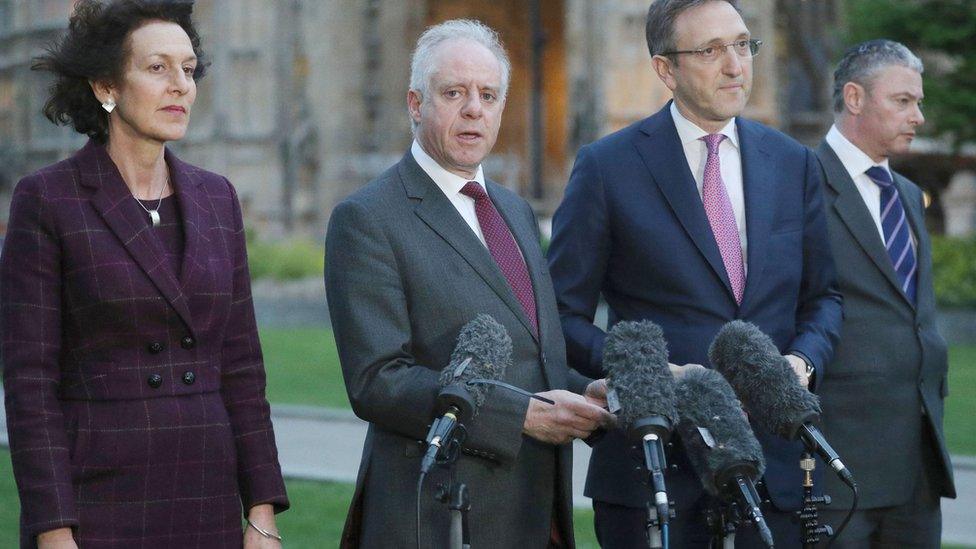
Members of the Board of Deputies said Mr Corbyn's proposals fell short of their suggestions
He added: "To watch as these so-called social democrats tried to demean and attack, in front of our enemy, a decent and honourable man who has fought racism and anti-Semitism all his life and who has breathed life and hope back into the hearts of millions, especially the young, made my stomach churn. To see Tory MPs cheer and applaud them was shameful.
"Promiscuous critics must expect to be criticised, and those who wish to hold Corbyn to account can expect to be held to account themselves."
'Denial'
Shadow Brexit Secretary Sir Keir Starmer said he disagreed with the Unite leader.
"We have got to deal with it robustly and effectively," he told BBC Radio 4's Today programme.
"Part of that is the disciplinary procedure, which needs to be much quicker and much more effective, but there is also a cultural question. Part of that cultural question is to stop those denying that there is even a problem. That is part of the problem."
Labour's shadow secretary of state for women and equalities, Dawn Butler, also suggested Mr McCluskey had got it wrong.
Speaking on Nick Robinson's Political Thinking podcast, she said: "I think it is not helpful for people to talk about about it in that way."
One of the MPs singled out by Mr McCluskey, Neil Coyle, accused the union chief of undermining Mr Corbyn's pledge to tackle anti-Semitism. Mr Streeting said he would not be deterred from voicing Jewish constituents' concerns, and Mr Woodcock told Mr McCluskey to focus on protecting Unite members' jobs.
Mr McCluskey's intervention comes after Mr Corbyn held what he described as "positive and constructive" talks on Tuesday with the Jewish Leadership Council and the Board of Deputies of British Jews.
But the groups' leaders took a different view, saying the talks were a "disappointing, missed opportunity" and did not agree a minimum plan of action.
- Published24 April 2018
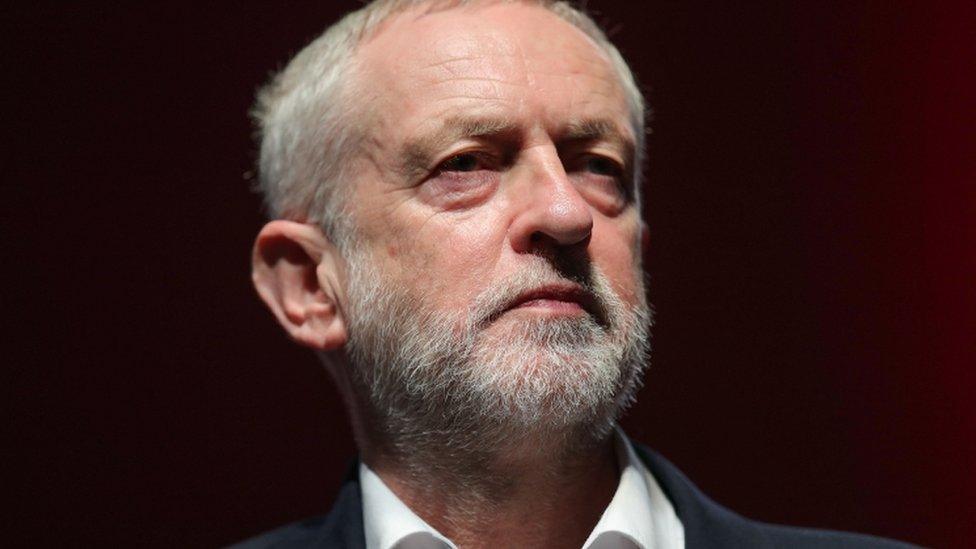
- Published17 April 2018
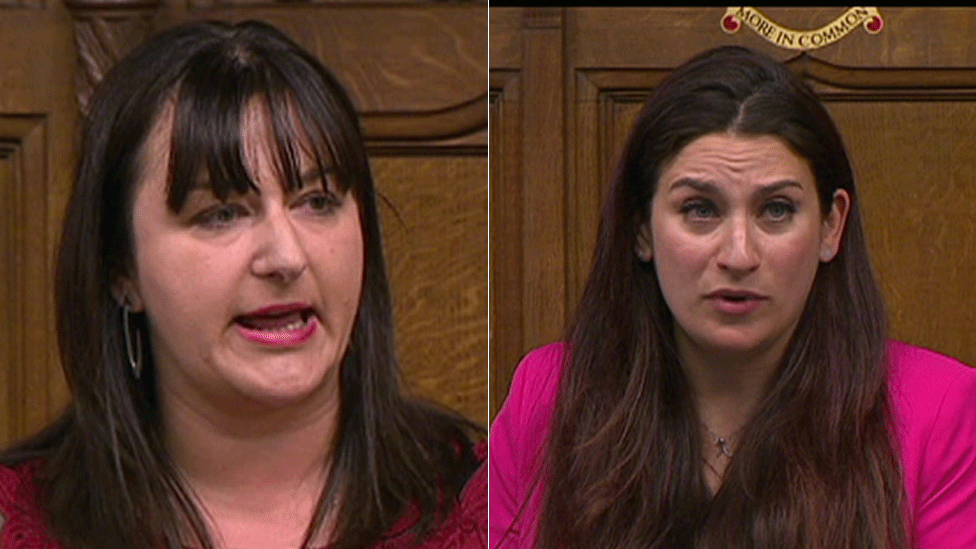
- Published25 March 2018
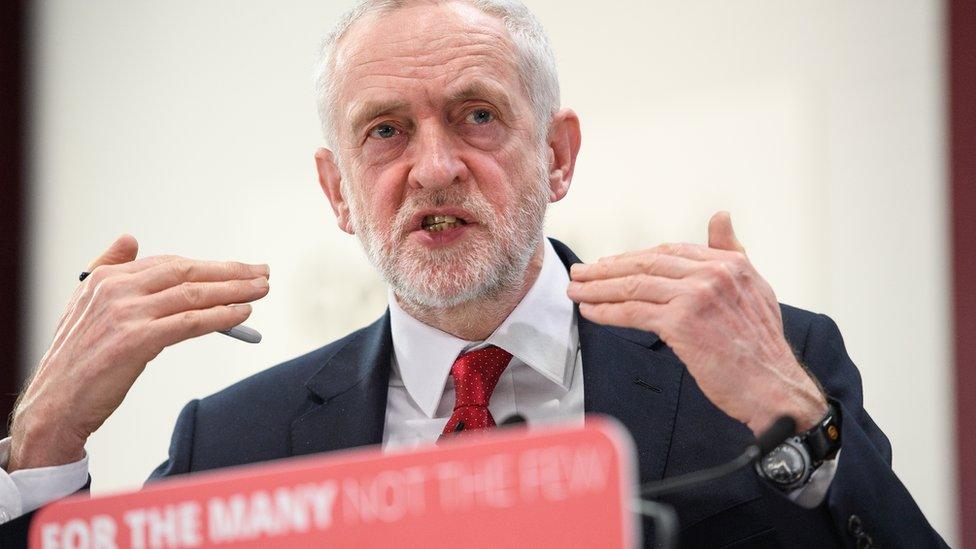
- Published26 March 2018
